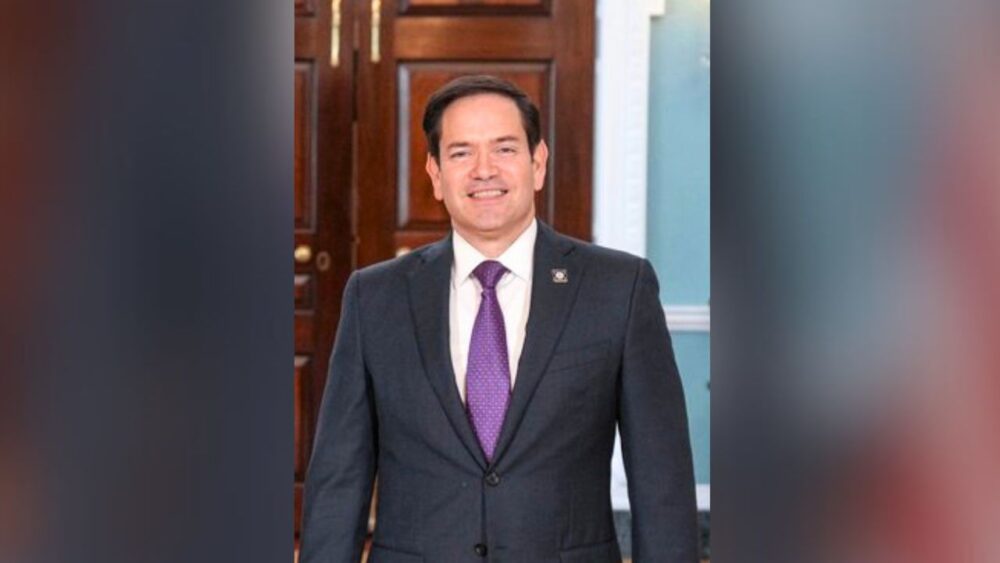Fresh off his elevation to acting national security advisor, Marco Rubio is now being floated for an even higher office: Pope.
Republican Sen. Mike Lee of Utah offered the suggestion Thursday in a tongue-in-cheek tweet showing an AI-generated image of Rubio dressed as the pontiff, standing outside the Vatican. “I’m just saying,” Lee wrote. “He can wear many hats.”
I’m just saying
He can wear many hats pic.twitter.com/5gwiKMZ8de
— Mike Lee (@BasedMikeLee) May 2, 2025
Once a rival of Trump in the 2016 presidential primaries, Rubio served as a longtime Republican senator from Florida before being tapped as Secretary of State in Trump’s second administration. Earlier this week, he was named acting national security advisor after Mike Waltz’s departure to procure the United Nations Ambassador position.
While Rubio’s assuming the papacy is more satire than serious speculation, it has prompted genuine curiosity about what it would take for a U.S. politician to become the leader of the Roman Catholic Church.
Rubio, 53, is a practicing Roman Catholic with a complex spiritual background. He was baptized Catholic and briefly attended a Mormon church while his family lived in Las Vegas during his childhood. Later, Rubio spent time in a Southern Baptist congregation before returning to Catholicism as an adult. He has frequently spoken about his faith, telling Iowa voters in 2016, “I’m fully, theologically, doctrinally aligned with the Roman Catholic Church,” per Politico.
Becoming pope is no easy feat—even for a well-connected Catholic like Rubio. The College of Cardinals fills the position in a process known as the papal conclave. Cardinals under age 80 gather in the Sistine Chapel, where they vote in successive rounds until a candidate secures a two-thirds majority.
Technically, the pope does not have to be a cardinal or even a bishop. In theory, any baptized Catholic male eligible to be ordained a priest can be elected. That rule opens the door, however slightly, to outsiders like Rubio. But for several centuries, every pope has come from the College of Cardinals, making such a scenario extremely unlikely.
If Rubio were somehow chosen, he would not be the first pope of Latin American ethnicity. That distinction belongs to Pope Francis, who was born Jorge Mario Bergoglio in Argentina. In 2013, he became the first Latin American and first Jesuit pope. However, Rubio would be the first pope born in the United States.
He wouldn’t be the only American interested in the job—at least in jest. Earlier this week, President Donald Trump quipped, “I’d like to be Pope. That would be my number one choice,” when speaking with reporters on April 29.
While humorous, Trump’s comment draws attention to the Church’s baseline requirement for the papacy: the candidate must be a baptized Catholic male. Trump, a Presbyterian by upbringing, does not meet that standard. As a confirmed Catholic, Rubio would pass that test—but there are other hurdles.
The last pope to be married was Pope John XVII (1003). Pope Gregory VII made celibacy mandatory in the Latin Rite in 1075. Rubio is married—in the Catholic Church, no less—a fact that would further complicate his path to the papacy.
The conclave to pick a new pope begins May 7. The process will continue indefinitely until a new Pontiff is picked.


